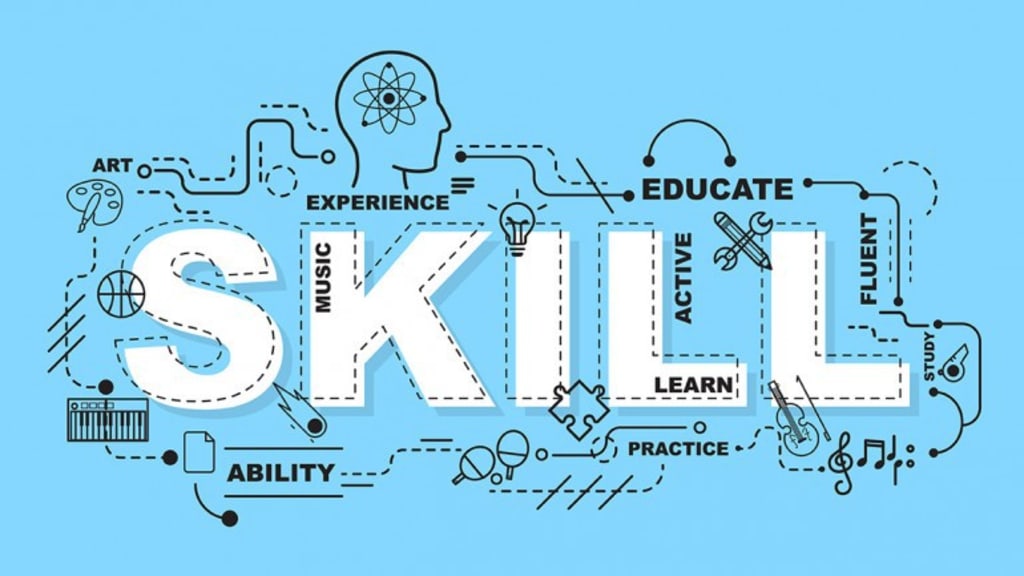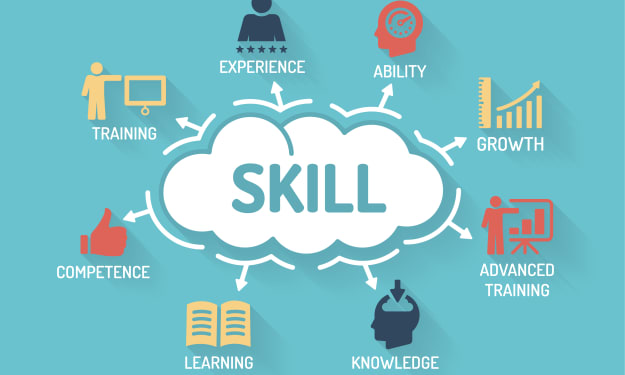Mastering Skills
The Path to Personal and Professional Success

In today's fast-paced and competitive world, the importance of acquiring and honing valuable skills cannot be overstated. Skills not only enhance our personal lives but also open doors to new opportunities and pave the way for professional success. Whether it's mastering a technical craft, developing effective communication abilities, or cultivating leadership qualities, skill acquisition is a lifelong journey that requires dedication, practice, and continuous learning. In this article, we will delve into the significance of skills, explore strategies for skill development, and highlight the numerous benefits of investing time and effort into honing one's abilities.
1. Understanding the Value of Skills (250 words)
Skills form the foundation of human development and progress. They enable individuals to excel in their chosen fields, adapt to changing circumstances, and contribute meaningfully to society. Skills can be categorized into two broad categories: hard skills and soft skills. Hard skills encompass technical competencies and specific knowledge relevant to a particular occupation, while soft skills encompass interpersonal skills, communication, problem-solving, and adaptability. Both types of skills are essential and complement each other in personal and professional contexts. Employers, for instance, seek candidates who possess a combination of technical expertise and strong interpersonal skills, recognizing the value of a well-rounded skill set.
2. Strategies for Skill Development (400 words)
a. Identify and Prioritize: Begin by identifying the skills you wish to develop. Assess your strengths and weaknesses, and determine which skills align with your personal and professional goals. Prioritize the skills that will have the greatest impact on your growth and success.
b. Set Clear Goals: Establish clear and measurable goals for skill development. Break down larger goals into smaller, achievable milestones. This approach provides a sense of direction and motivation throughout the learning process.
c. Seek Learning Opportunities: Explore various avenues for acquiring new skills. Traditional education, online courses, workshops, seminars, mentorship programs, and hands-on experience are all valuable sources of learning. Embrace lifelong learning and adopt a growth mindset to stay ahead in an ever-evolving world.
d. Practice and Application: Skills are developed through deliberate practice. Dedicate time to consistently hone your abilities. Apply your skills in practical scenarios to reinforce your learning and gain confidence in their application.
e. Seek Feedback and Learn from Others: Seek feedback from mentors, peers, and experts in the field. Constructive criticism helps identify areas for improvement and provides valuable insights. Additionally, learning from the experiences and expertise of others can accelerate skill development.
3. The Benefits of Skill Mastery (400 words)
a. Personal Growth: Mastering new skills fosters personal growth by expanding knowledge, broadening perspectives, and boosting self-confidence. It enhances critical thinking, problem-solving abilities, and adaptability, enabling individuals to navigate life's challenges with ease.
b. Professional Advancement: In the professional realm, skills play a pivotal role in career advancement. Possessing a diverse range of skills sets individuals apart from their peers and enhances their employability. Continuous skill development keeps professionals up-to-date with industry trends and positions them as valuable assets to organizations.
c. Increased Productivity and Efficiency: Skills contribute to increased productivity and efficiency in various domains. A strong skill set enables individuals to complete tasks more effectively, make informed decisions, and generate innovative solutions. This, in turn, leads to enhanced performance and success in professional endeavors.
d. Expanded Network and Opportunities: Developing skills often involves engaging with a community of like-minded individuals. Such interactions foster networking opportunities, enabling individuals to connect with professionals in their field and expand their horizons. Building a strong professional network opens doors to new opportunities, collaborations, and mentorship.
4. Overcoming Challenges in Skill Development (300 words)
Developing skills is not without
its challenges. It requires perseverance, commitment, and the ability to overcome obstacles. Common challenges include time management, lack of resources, fear of failure, and the tendency to stick to comfort zones. However, by adopting effective strategies such as setting realistic goals, creating structured learning plans, and embracing a growth mindset, these challenges can be overcome.
Conclusion (150 words)
Mastering skills is a lifelong journey that offers immense personal and professional rewards. By recognizing the value of skills, developing effective strategies, and embracing continuous learning, individuals can enhance their personal growth, unlock professional opportunities, and thrive in a rapidly changing world. Skill development is not only a means to success but also a fulfilling and enriching pursuit that broadens horizons, fosters creativity, and empowers individuals to reach their fullest potential. So, embark on your skill development journey today and unlock a world of possibilities. Remember, with dedication and perseverance, the path to personal and professional success lies within your grasp.





Comments
There are no comments for this story
Be the first to respond and start the conversation.